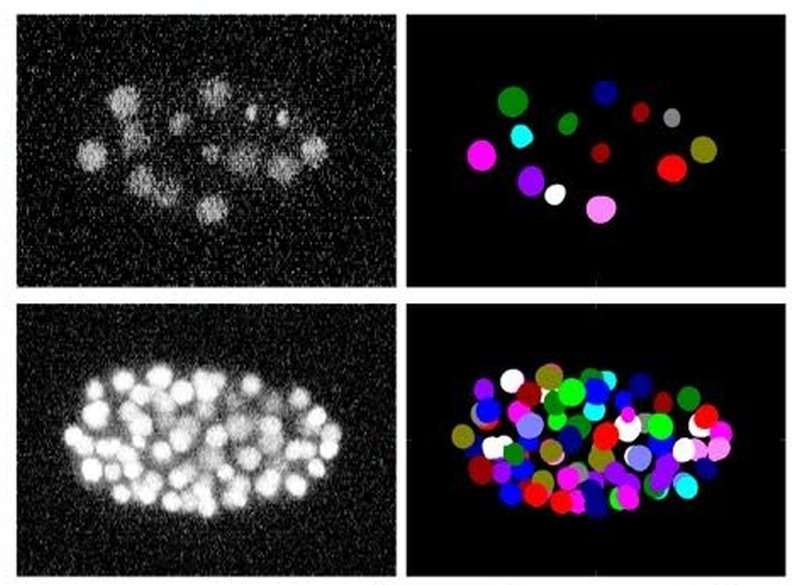A video database for cellular tracking created, useful in the fight against cancer

Universidad Carlos III de Madrid (UC3M), the University Hospital Gregorio Marañón (HGUGM) and Universidad de Navarra, together with other international institutions, have developed a video database for cellular tracking that can be used to determine alterations involved in illnesses such as cancer.
The results of this research have been published in Nature Methods, in an article that gathers data from the last three editions of the Cell Tracking Challenge. This competition, which invites scientists from all over the world to include videos on cellular migration, has registered participation from 21 research groups throughout 18 countries. In total, 52 videos with 92 GB have been analyzed. Some are synthetic, that is, they are created through software that simulates cells, while others are real, mainly obtained through bidimensional and tridimensional microscopy. "In addition to the videos, this new database provides the code to interpret them, that is, the segmentation algorithm and the cellular tracking and the tools to evaluate these algorithms in an objective manner," said one of the study's authors, Arrate Muñoz Barrutia.
Throughout an individual's life, particularly during embryonic development, a large quantity of cells proliferates, and if necessary, they differentiate. These cells must migrate to different parts of the human body to carry out their functions. This happens in normal processes, as well as in other anomalous processes such as cancer, when the cells metastasise and colonize other tissues.
"Studying the movement and proliferation of cells, we can know how the living being's organisms work, in normal processes as well as in alterations involved in illnesses, such as cancer," said the study's main author, Carlos Ortiz de Solórzano, Director of the Plataforma de Imagen y del Laboratorio de Modelos Preclínicos y Herramientas de Análisis del Center for Applied Medical Research of the Universidad de Navarra. "The cellular tracking is also a very useful tool for finding out its genealogy, that is, where the cells of an organ come from, so that we can study the initial processes of an illness," he added.
"To understand how cellular migration alters in cancer or other illnesses, or how a metastasis originates, it is often necessary to identify the cells in an individual way and track them over time," Arrate Muñoz Barrutia explained. The information is useful for researchers who use cellular tracking methods in their studies. All of the material used in the Cell Tracking Challenge can serve as a guide to help in decision making regarding which algorithmic solution to use in different cases, thereby obtaining more precise information that contributes to advance knowledge in the biomedical field. "For example, we have confirmed that the algorithms that work best are those that use learning techniques and those that carry out the tracking in its whole taking into account the cell life," Carlos Ortiz de Solórzano pointed out.
The use of this method has endless applications, according to the researchers. For example, it can be applied in studies on embryonic development, research on formation mechanisms of different organs and in the response to therapy for different illnesses, such as cancer. "One of the characteristics of tumor cells is a greater motility and cellular proliferation. These two aspects can be quantified in a very precise way based on the delineation of the individual cells and the tracking over time," Muñoz-Barrutia said.
More information: Vladimír Ulman et al. An objective comparison of cell-tracking algorithms, Nature Methods (2017). DOI: 10.1038/nmeth.4473

















